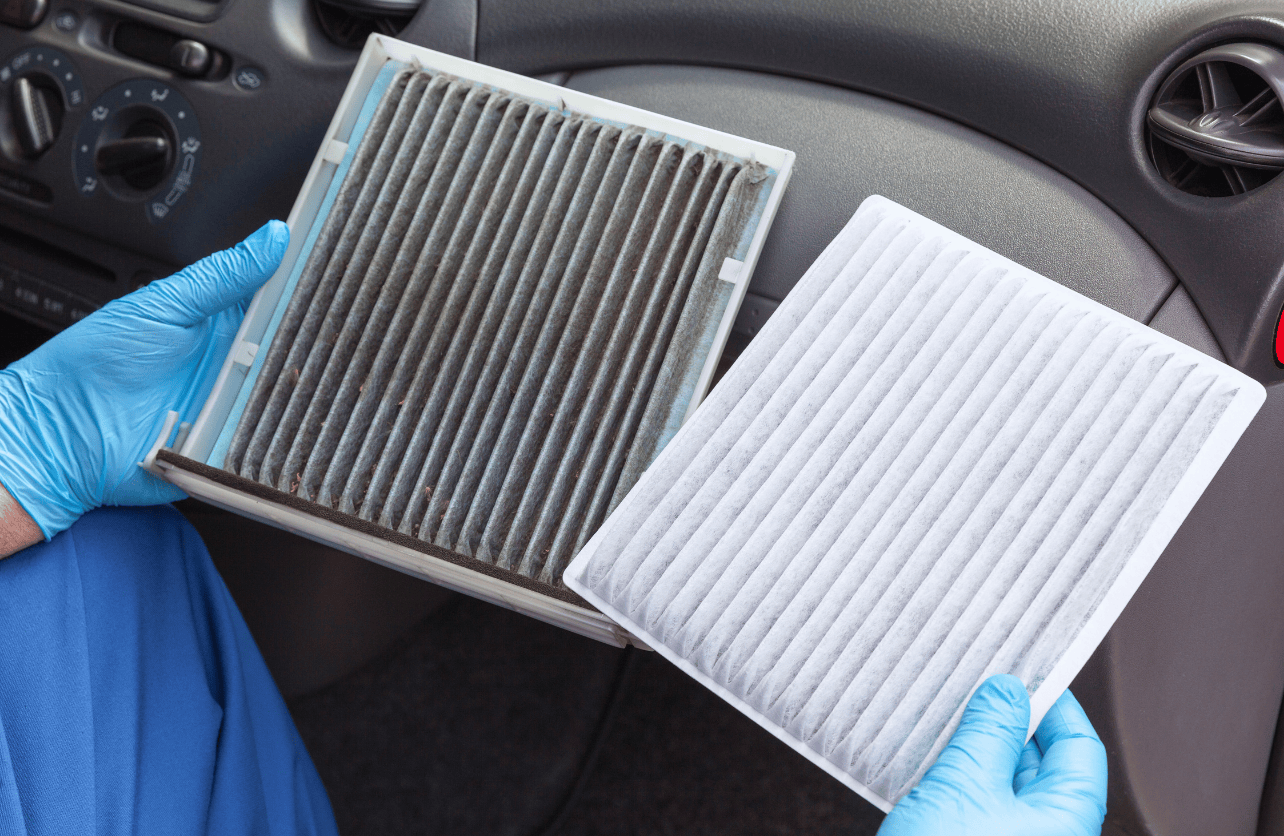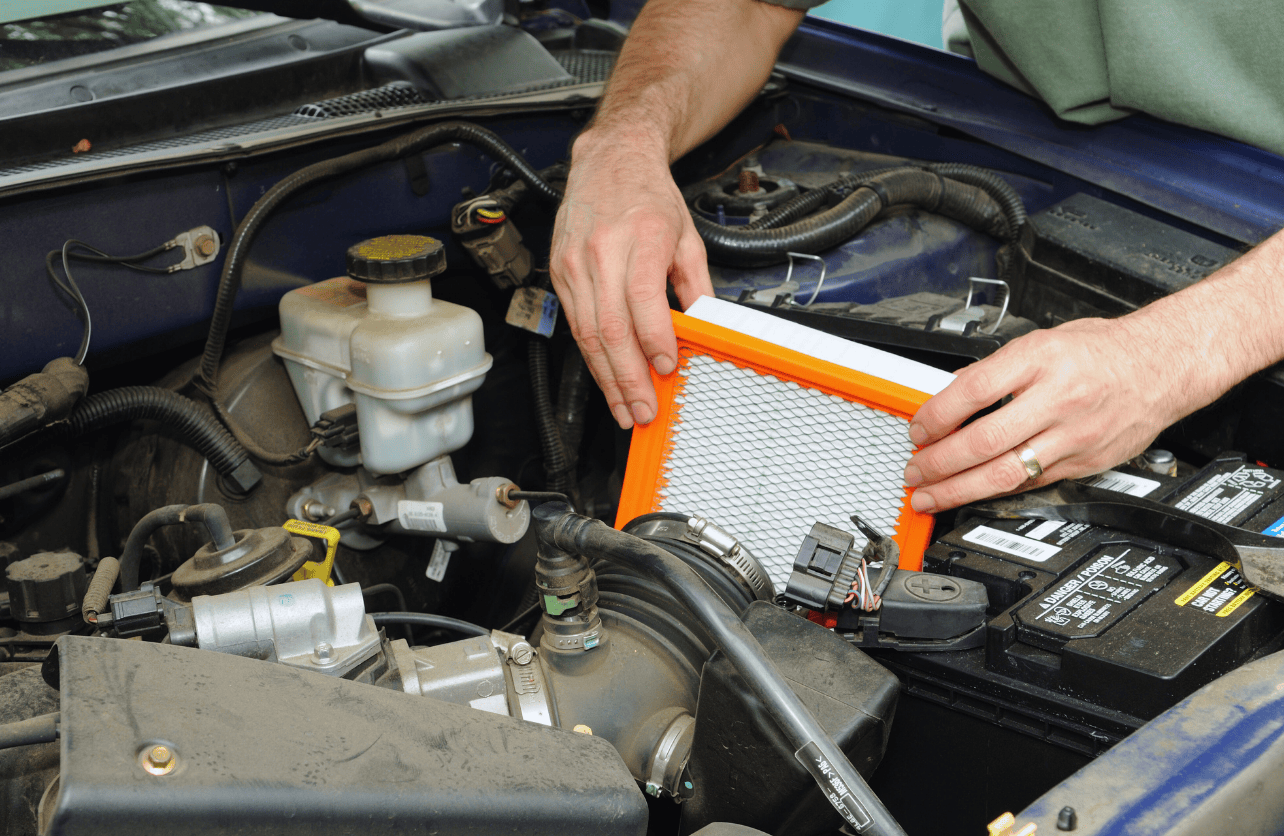How Often Should You Change Your Car’s Air Filter?

A car’s air filter plays a vital role in keeping the engine running smoothly by preventing dust, debris, and other contaminants from entering the engine. Over time, however, the air filter gets dirty and clogged, which can impact engine performance, reduce fuel efficiency, and even lead to costly repairs. So, how often should you change your car’s air filter? The answer depends on several factors, including the type of driving you do, the manufacturer’s recommendations, and your vehicle’s environment. Here’s a guide to help you understand when to change your car’s air filter and why it matters.
Recommended Air Filter Change Interval
Most car manufacturers recommend changing the air filter every 12,000 to 15,000 miles or about once a year, whichever comes first. However, these are general guidelines, and it’s best to check your vehicle’s owner’s manual for specific recommendations, as some cars may have different requirements.
For example:
- Standard cars often suggest air filter changes every 12,000 to 15,000 miles.
- High-performance vehicles or cars with turbocharged engines may require more frequent changes due to higher airflow demands.
While 12,000 to 15,000 miles is a typical range, it’s wise to inspect the air filter every time you get an oil change to ensure it’s in good condition.
Factors That Affect How Often You Should Change Your Air Filter
The recommended mileage interval for air filter replacement is just a starting point. Other factors can impact how often you should replace your air filter, such as:
Driving Environment
If you frequently drive in dusty or polluted areas, such as on unpaved roads or in cities with heavy pollution, the air filter may become clogged more quickly. Similarly, if you drive in areas with high pollen levels, like rural or forested regions, the air filter may need to be changed more frequently.
Driving Habits
Driving habits can also play a role in how often you need to change your air filter. Short trips in stop-and-go traffic expose the engine to more pollutants compared to long highway drives, potentially clogging the filter faster. If you’re often in heavy traffic or make frequent short trips, consider inspecting the filter more often.
Seasonal Factors
If you live in an area with extreme seasons, such as harsh winters or hot, dry summers, the air filter may be exposed to more contaminants. Winter brings in road salt and other debris, while summer can increase the amount of dust and pollen. Both can contribute to faster air filter clogging.
Vehicle Type
Certain vehicle types, like high-performance cars or off-road vehicles, may require more frequent air filter changes due to increased airflow needs or challenging driving conditions. Consult your owner’s manual to see if your vehicle falls into this category.
Signs That Your Air Filter Needs Replacing
Beyond mileage, there are several signs to watch for that indicate your air filter may need replacement sooner:
Decreased Fuel Efficiency
One of the first signs of a clogged air filter is decreased fuel efficiency. When the filter is dirty, it restricts airflow to the engine, causing it to work harder to draw in the air needed for combustion. This increased effort can lead to higher fuel consumption, meaning you’ll find yourself stopping at the gas station more frequently.
Reduced Acceleration or Power
If you notice that your car doesn’t accelerate as smoothly or seems less powerful than usual, it could be due to a restricted air filter. A clogged air filter can prevent the engine from receiving the air it needs to perform efficiently, affecting overall power and acceleration.
Black Smoke from the Exhaust
A severely clogged air filter can result in improper combustion, leading to black smoke or soot coming from the exhaust pipe. This is because the engine isn’t receiving the right amount of oxygen, leading to incomplete fuel combustion.
Check Engine Light
In some cases, a dirty air filter can cause the check engine light to illuminate. This is because the restricted airflow can trigger the engine’s sensors, detecting an imbalance in the air-to-fuel ratio.
Visual Inspection
If you’re unsure whether it’s time to change your air filter, perform a visual inspection. A clean air filter is usually white or off-white, while a dirty one will look gray or black and may have visible dirt and debris. If your filter appears dirty, it’s probably time for a replacement.
How to Replace Your Car’s Air Filter

Replacing a car’s air filter is a straightforward process that you can do yourself in just a few minutes. Here’s how:
- Locate the Air Filter: The air filter is typically housed in a black plastic casing near the top of the engine. Consult your owner’s manual if you’re unsure where to find it.
- Open the Air Filter Housing: Use a screwdriver if necessary to open the air filter housing. In many cars, you can unclip the housing by hand.
- Remove the Old Filter: Take out the old air filter, being careful not to let any dirt or debris fall into the air intake.
- Inspect and Clean the Housing: Wipe out any dirt or debris from the air filter housing with a clean cloth to ensure the new filter fits properly.
- Install the New Filter: Place the new filter into the housing, making sure it fits securely.
- Close the Housing: Clip or screw the air filter housing back into place.
Benefits of Regular Air Filter Replacement
Changing your air filter regularly has several benefits that contribute to the overall health and efficiency of your vehicle:
- Improved Fuel Efficiency: A clean air filter allows the engine to receive optimal airflow, promoting efficient combustion and helping you get better gas mileage.
- Enhanced Engine Performance: With a clean air filter, your engine doesn’t have to work as hard to draw in air, improving acceleration and power.
- Reduced Emissions: A clogged air filter can result in incomplete fuel combustion, which produces higher emissions. A clean air filter promotes cleaner burning, reducing pollutants.
- Longer Engine Life: By preventing dirt and debris from entering the engine, a clean air filter helps reduce wear and tear, potentially extending the life of your engine.